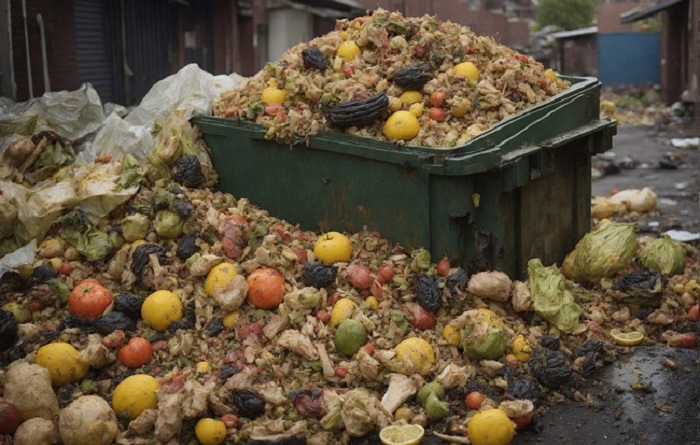Introduction:
The disparity between one half of the world with more than enough food so much that it often goes to waste. Whereas, on the other hand one half of the world simultaneously faces a huge food and water scarcity. Global food waste generation is a problem that exists since the dawn of cultivation practices. Modern global food waste problem starts from the agricultural industry itself and ends up with the landfill.
The amount of people dying from hunger/ starvation, famines and water scarcity is very striking in the face of the fact that more than 40% of food goes to waste annually.
Related: 10 Favourite Food Items At Risk of Extinction In Near Future
Causes of Food Waste Globally:
- Unsustainable and Irresponsible Consumerism: Capitalism, and general advertising practices by grocery stores and companies are responsible for encouraging people to buy more than they need. Putting up sales, Black Fridays, high discounts and seemingly good deals that make it irresistible for people to not buy products in advance. Most of this food ends up going bad/ expired and ultimately ends up in the garbage bins from where it ends in the landfills.
- Mismanagement of Restaurants: Poor portion sizes, unorganized and irresponsible inventory and use of ingredients along with leftovers often end in the garbage. This plate waste often contributes to a large percentage of wasted food ending up in landfills.
- Unsold Market Products: Expired food or unsold food that is beyond manufacturing date and was not able to be sold in time ends up in the landfill sites too. Thus, contributing to a large number of GHG emissions that result from a waste of food resources and packaging.
- Discarded Food: food trimmings, rinds, peels etc. that are often discarded in most high-end restaurants in the name of modern delicacies also results in food loss- which is when a huge portion of an ingredient is not part of the meal it is being used for. Only about less than a quarter of that ingredient is used for a dish/plate and the rest often goes bad and is basically ultimately discarded.
- Climate Change: Perhaps the most important reason right now is the fact that extreme weather events, climatic influenced range shifts, early onset of spring and summer etc. are significantly impacting the cultivation cycles for many crops as well as prices and harvesting of food itself. Making food scarcer, more expensive and resulting in food loss as well.
Check out: Climate Change Is Increasing Food Shortage Around The World
Effects of Food Waste Globally:
- Contributes to hunger worldwide: A disproportionate number of people worldwide are dying frequently from hunger and malnutrition. Whereas in the same place often, a large number of people are wasting food by tonnes.
- Waste of natural resources: Growing food involves the use of soil, water, air, chemicals often in the form of pesticides, packaging material like plastic, transportation and fuel costs, distribution etc. all take up and release enormous amounts of GHG emissions. Not to mention there are some foods that are extremely hard to grow and require an astounding amount of water and other resources.
- Food Insecurity: The result of food losses from climate change and loss of land and soil fertility as a result has lead to an increase in food insecurity.
Growing food requires 20% of our land, 32% of energy and power used in transportation, harvesting machines and distribution, and almost 70% of the water we withdraw from lakes, rivers and underground water tables. All the food wasted ends up in landfills which consequently ends up polluting our land and water and resulting in increasing emissions.
Solutions to Global Food Waste:
With the Earth’s population hitting 8 billion, we are more pressed for lack of cultivable land, fertile soil due to increased urbanization and demand for housing. Yet, our food waste has significantly gone up in recent years for a number of reasons such as Social Media trends and an all time high rise in consumerism.
Sustainable Food Management can play a vital role in many places to prevent food waste. Restaurants that end up throwing good food only because it was not eaten by anyone for whatever reason could be donated to lesser privileged people or the employees that are often students unable to afford proper meals even. Secondly, the strict regulations for shelf life of products may end in perfectly good and edible food being taken off the shelves far too early.
Composting– food waste, whether coming from homes or restaurants can be used for composting which will not only prevent landfill site dumping and over flow but also be sustainable as it is part of the 3R strategy to reduce waste generation. It is overall quite beneficial for the fertility of the soil that can be used in home gardens, restaurant rooftop gardens or just be sold as compost for recycling.
For more information check out: 15 Easy and Practical Ways to Reduce Food Waste
Also check out: Top 15 Countries with Highest Percentage of Food Waste
I hope you all liked this post! Please comment below if you have any suggestions, comments, or feedback! We at #envpk love hearing from our readers! Thanks!




